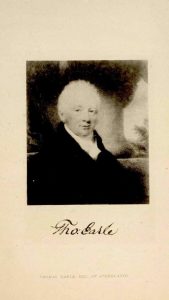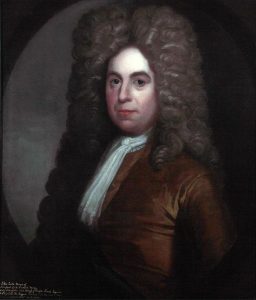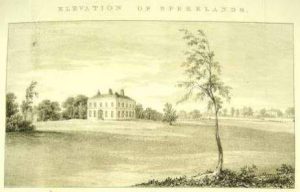Thomas Earle

Earle Street, Earle Road and Earlestown are all named after members of the Liverpool slave-trading dynasty, the Earle Family.
The Earle Family of Liverpool were heavily involved in slavery and the slave trade over four generations, as slave ship owners, captains, and plantation landlords. John Earle 1674-1749 (pictured below) came to Liverpool from Warrington in 1688, joining the house of William Clayton, a Member of Parliament and a well-known merchant who partnered John in financing one of the first legal slave ships to leave Liverpool, the ‘Union’, in 1699. By 1700, he had established his own business and was trading in a range of commodities including: wine, tobacco, sugar and iron goods, whilst also investing in another two slaving voyages that year, firmly establishing the family interest in slaving that would continue for over a century. In 1709, John was elected Mayor of Liverpool and at some point purchased land off Old Hall Street where Earle Street is named in his honour. At his death in 1749, three of his four surviving children: Ralph 1715-1790, Thomas 1719-1781 (pictured above) and William 1721-1788, were trading in beads, one of a variety of commodities used in slave trading on the African coast. All three brothers were also investors in slaving voyages. Ralph became mayor of Liverpool in 1769 and John’s youngest son, William, captained a slave ship as well as partnering with his brothers in many slaving vessels. After William died in 1788, his sons Thomas (1754-1822) and William (1760-1839) took over the family business including their slaving interests. Thomas served as mayor in 1787 and by this time had used the family wealth to purchase the Spekeland estate, where in 1805 he built Spekeland House (pictured below), close to the site of Earle Road. By the 1830s, the Earle’s owned a number of plantations in Antigua and Thomas’s son, Sir Hardman Earle, 1st Baronet (1792-1877), received more than £19000 in compensation for the enslaved people he had to free when slavery was abolished in 1834. Hardman used his wealth to commission Harvey Lonsdale Elmes to build Allerton Tower. Sir Hardman was the Director of the London & North Western Railway and Earlestown near Newton-le-Willows is named in his honour.

